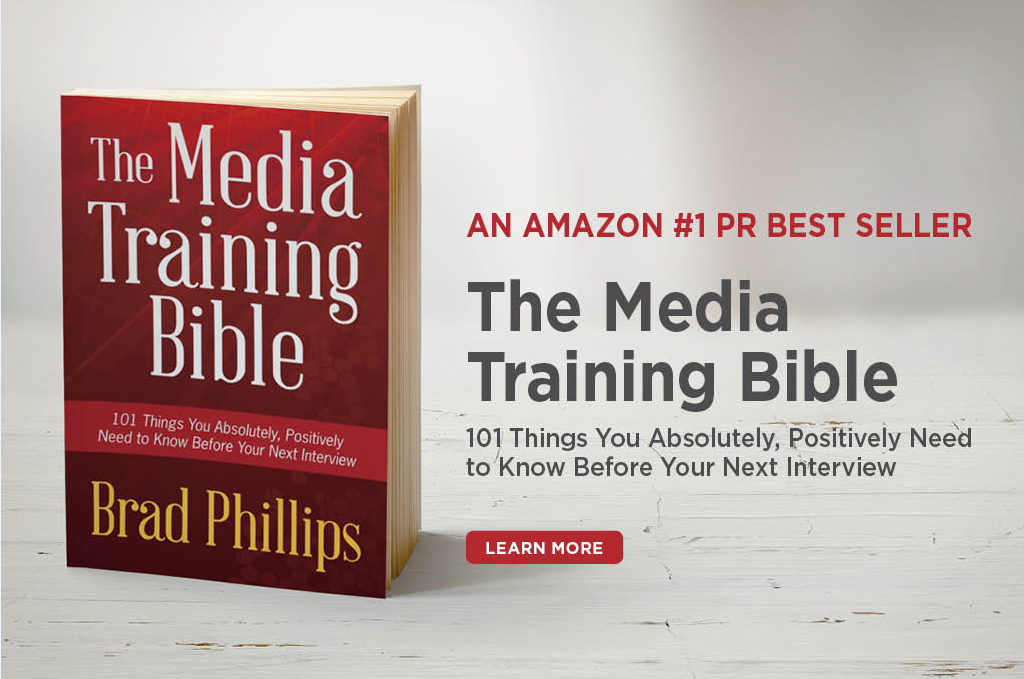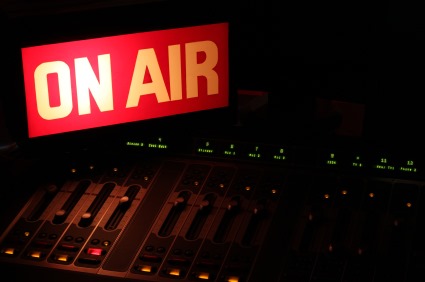Seven Ways to Rock Your Next Radio Interview
“Hi, is this Brad? Good. You’re on the air in three seconds.”
I’ve done hundreds of radio interviews throughout my career. They seem simple. After all, you just pick up the phone and have a conversation with an experienced talk-show host.
But they’re actually nothing like normal phone conversations (unless the friends with whom you chat take listener phone calls and toss to a commercial break every ten minutes or so).
Based on my own experiences over the past ten years, here are seven things you need to know about your next radio interview.
1. Radio Interviews Can Begin Abruptly
Most of the radio stations I’ve worked with have arranged to call me rather than having me call into the studio (it can work either way, but many producers prefer to control the timing by calling the interviewee themselves).
Some producers call a few minutes before the interview begins, allowing you to listen for few minutes and get a feel for the program’s tone. But other producers wait for the last possible second, meaning you’re on the air within seconds of picking up the phone. When you pick up the phone, be ready to go live on a second’s notice – or on no notice at all.
2. Help Your Host
Short answers allow the host ask another question, take another phone call, or throw to commercial – so keep your answers to 30 seconds or less. Finish your answer with a declarative sentence that ends on a vocal downtick to make it clear to the host that you’ve completed your answer.
3. Express Passion
Sure, you’re on the radio. But listeners will “hear it” if you stand, use well-timed gestures, and smile – so get a telephone headset and gesture away. Try to match or slightly exceed the host’s energy level to avoid sounding flat.

4. Don’t Depend On Them To Make The Plug
During one of my recent interviews, the host gave the wrong plug. Another host offered no plug at all. Although most experienced hosts are adept at sending their listeners to your toll-free phone number or company website, some aren’t. That means it’s up to you to mention that information a couple of times throughout the interview.
You can help the host’s odds of getting the plug right by sending the information you’d like plugged in advance of the interview. I also often send the producer a shortened version of my bio in advance, which many hosts use verbatim on the air.
5. High Drop-in, Drop-Out Rates
Many people who are listening at the beginning of your segment aren’t going to be there at the end. Other listeners will join in the middle. Therefore, repeat your main messages – or themes – numerous times during the interview. You shouldn’t use the same words, so find different ways of articulating the same main points.
6. Treat Crazy Callers With Respect
If you do radio interviews long enough, you’ll get the crazy guy who goes on an angry rant that has little to do with your interview topic. Maintain the high ground. The public recognizes angry callers for what they are, so impress the audience with your graceful and kind handling of the caller. That doesn’t mean you can’t push back on incorrect assertions – you should, every time – but rather that you do so respectfully. (Click here for three additional tips to help you handle crazy phone calls.)
7. Radio Hosts Hang Up On You
At the end of most radio interviews, the host hangs up the phone. They’re not being rude – they have to move on to the next segment and clear the studio line for the next guest. Still, I recommend you stay on the line when the interview ends. Some hosts (or producers) will pick up the phone to thank you, and some will even ask your availability for a future interview.
Like the blog? Read the book! The Media Training Bible: 101 Things You Absolutely, Positively Need to Know Before Your Next Interview is available in paperback, for Kindle, and iPad.




As an experienced radio personality and programmer, I’d like to add some insider thoughts to this very well written post.
1) Don’t just be ready to make your plug, be ready to talk AT LENGTH. Assume the interviewer knows NOTHING about you, your background service or product. I’m embarrassed by the lack of preparation of most radio hosts and interviewers.
2) On the other hand, most authors, experts etc. invited to talk shows are dry, unmemorable and recite rote statements about their book, project whatever.
Your job is to be significant in some way. Stick out. Be distinctive. If you want to be invited back, make sure you do something (have a signature story, an outrageous claim) that gets you remembered.
3) Specifically ask that your info be put on THEIR website. All hosts now have blogs, pages, places where listeners go to find out info about what they have heard. Make sure you send that info and follow up to make sure it’s there.
Good luck.
Mark – I’m really glad you left your insights on the blog – you’re dead-on. I may be able to use some of your points in a follow-up post, and will contact you off-line to ask your permission.
Wonderful suggestions by Brad and Mark. Love this place!!
excellent and straight to the point
Brad and mark,
Thanks for the suggestions. I am preparing to do a Radio show and was just fishing for ideas from experts.